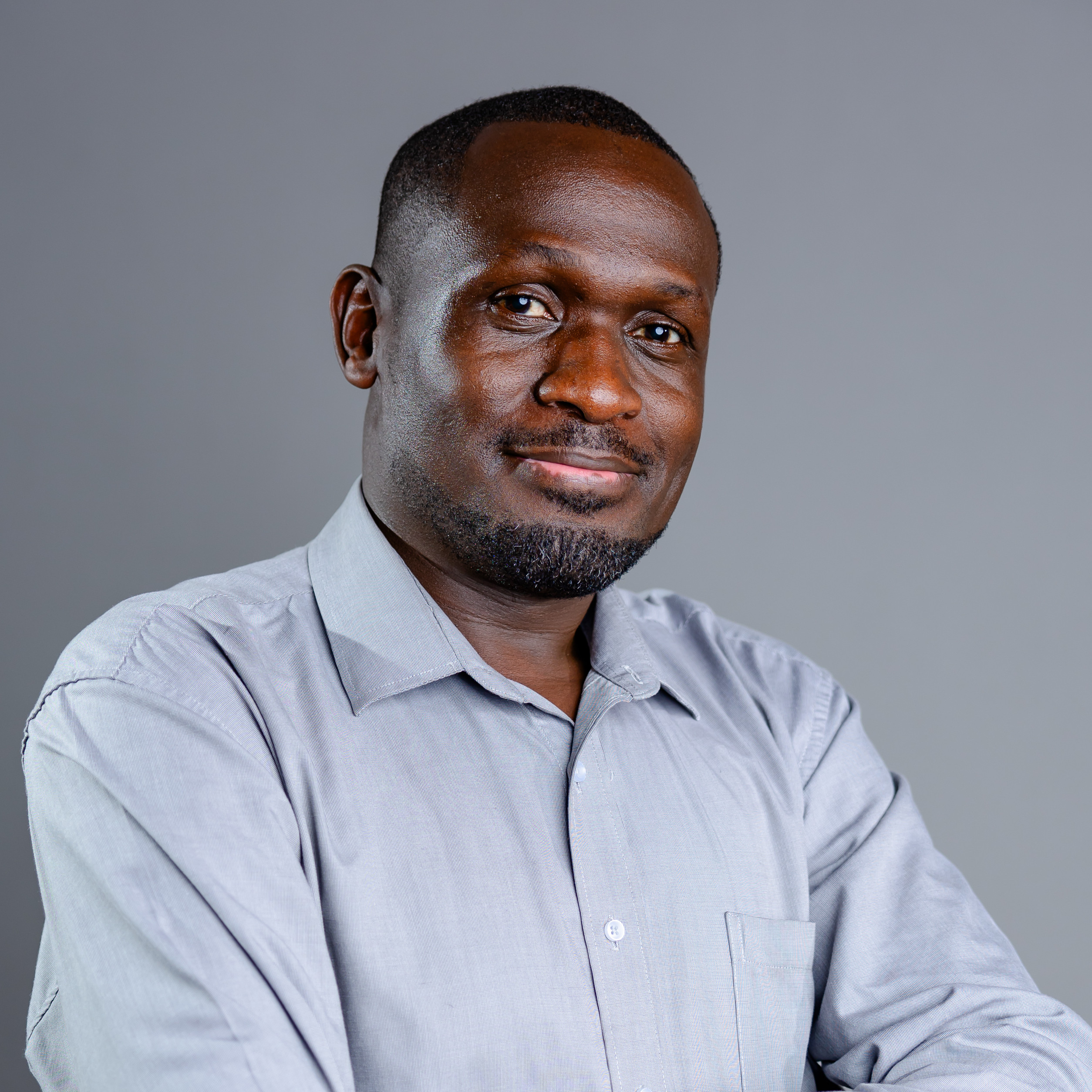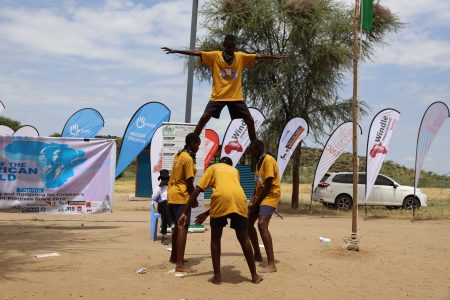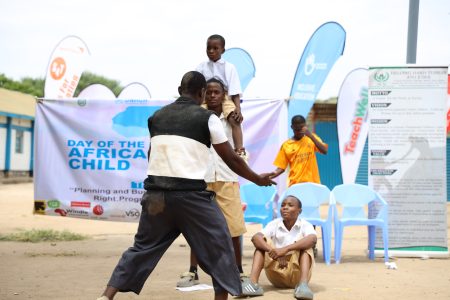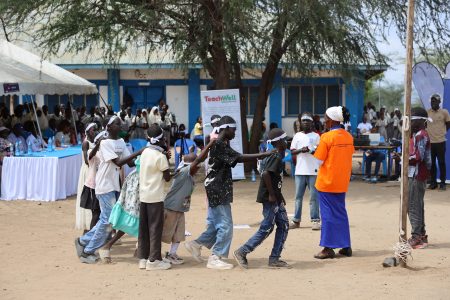CONTRIBUTORS

Davis Muli Musyoki
Communications Officer

Erick Simiyu Makhapila
Research Officer
Angelina Jolie Boarding Primary School in Kakuma was alive with color, music, and powerful messages of hope as learners, teachers, and community members gathered to mark the Day of the African Child (DAC) on June 16, 2025, in Turkana County. This year’ s theme honors the children who lost their lives during the 1976 Soweto Uprising in South Africa, where they protested against poor-quality education under apartheid. Today, the DAC serves as a powerful reminder to governments, organizations, and communities across the continent to uphold and protect the rights of all African children, especially the most vulnerable.
The choice of Angelina Jolie Boarding Primary School as the venue was symbolic—a place that stands for protection, resilience, and hope for children who have endured the hardship of displacement. It became a stage not just for celebration, but for the voices of young dreamers to be heard. In a stirring performance, the children shared their hopes of becoming pilots, doctors, humanitarian leaders, and managers—individuals who would return to uplift their communities. Their message was simple yet profound: our dreams are valid. Through their words and songs, they asked not for pity, but for possibility—for a future where they are no longer defined by their refugee status, but by their aspirations and potential.

This year’s theme, adopted from the African Union, was “Planning and Budgeting for Children’s Rights: Progress Since 2010.” It challenges African governments and development partners to reflect on the progress made over the last 15 years—and to take bold, targeted steps to ensure that national plans and budgetary decisions prioritize children’s needs, especially the most vulnerable. This year’s Day of the African Child is more than a historical reflection—it is a call to action. For children in refugee settings and marginalized communities, this call is even more urgent, given the need for the right resources to uplift the well-being of young children, who are the future leaders.
Throughout the event, learners also expressed their dreams, resilience, and right to a better future. Their performances echoed the 2025 theme, calling for greater investment in education, child protection, and meaningful participation in decisions that affect their lives. These creative expressions were not just entertainment—they were bold statements of hope and a call for action to support the rights of all children, especially those in refugee settings.
One of the most touching moments came through a drama performance that painted a vivid picture of young refugees dreaming beyond the fences of displacement. They envisioned becoming pilots, doctors, humanitarian workers, and leaders—committed to finishing their education and serving their communities. Their voices rang with confidence and purpose, reminding everyone that their dreams are real and valid. This vision ties closely with the Shirika Plan, a bold government-led initiative aimed at integrating refugees into host communities and ensuring equal access to services and opportunities. For these children, it’s more than policy—it’s a promise of a future without limits.

Policy actors present at the event including the State department of refugee services, teachers service commission and local government officers \raised a unified call to action, stressing that in crisis-affected contexts like Kakuma, planning and budgeting for children’s rights must move beyond conventional systems. They emphasized the urgent need to respond to the unique vulnerabilities of displaced children by investing in teacher support, mental health services, inclusive curricula, and flexible learning tools. Education in Emergencies, they affirmed, is not just a humanitarian need—it’s a development priority that restores dignity, nurtures resilience, and ensures every child’s right to learn. The Day of the African Child stood as a reminder of what is possible when education systems are inclusive, well-planned, and properly funded.
The African Population and Health Research Center (APHRC) joined the Kakuma celebrations through its contribution to the TeachWell project. The project, led by the International Rescue Committee (focusing on playful learning) and Save the Children (leading on TeachWell Voices), places APHRC at the helm of research and learning, ensuring that interventions are grounded in evidence and real-world insights. By participating in this year’s Day of the African Child, APHRC reaffirmed its commitment to amplifying the rights of every child, especially those growing up in refugee and host community contexts.

APHRC continues to push for evidence-informed planning and budgeting that prioritizes foundational learning, inclusive access, and child well-being. Whether in refugee camps like Kakuma, informal settlements, or underserved rural areas, the Center advocates for education systems that protect and uplift every child. Marking the Day of the African Child in Kakuma was more than just a celebration—it was a powerful reminder that turning children’s rights into reality requires more than goodwill. It calls for political will, sustained investment, and shared accountability to ensure that no child is left behind.